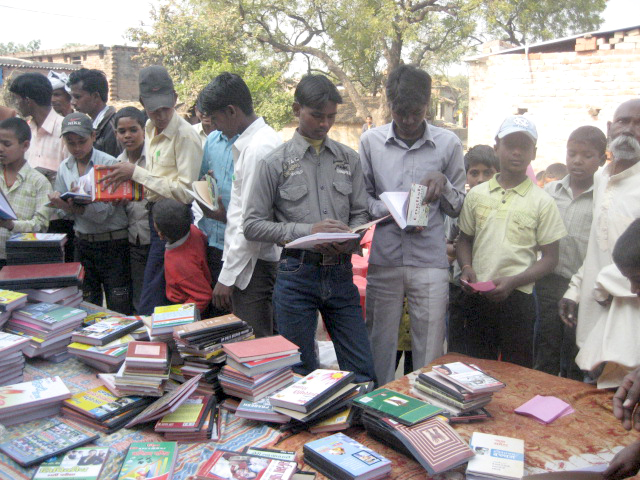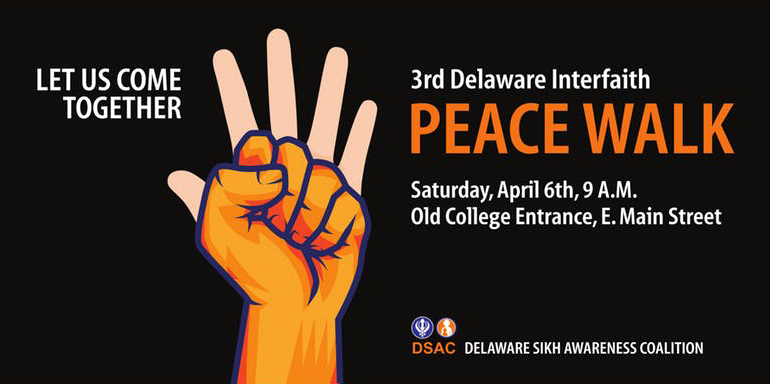Everyone knows that education is important, but in some parts of the world it is difficult, if not impossible, to come by.
Not many know of two Dover-Camden area Delawareans — Sanjay Kumar and Mahendra Kumar — whose life mission is to change that through a non-profit they started in 2005 aptly named Be Educated!
Like me, the two men (who are not related) were born and educated in India and are in the software industry. I met them nearly 20 years ago when we all lived in Dover’s Woodmill Apartments. I contacted them recently to find out the origin of their educational mission.
Libraries in remote villages
“I was visiting my hometown Lucknow in 2004 where I met Raj Kumar,” recalled Sanjay. “He came along with the vehicle I had hired for my holidays as its driver. He ranted during every single ride about how miserably middle and high school students in rural India do in exams.”
Why? One day, Sanjay finally asked him.
“‘Because the poor and underprivileged in villages can’t afford ‘guides’ (test prep and study materials),” Raj said.
Mahendra’s inspiration was rooted in unfair favoritism and politics. He witnessed blatant and pervasive corruption in the schools. For example, he said, a politician’s son unable to spell his own name was acclaimed over and above other students for academic excellence.
To counter this malaise, Sanjay and Mahendra evolved a simple and economical solution. They opened libraries stocked with study guides in the homes of unpaid, impassioned volunteers in the neediest villages. Each of these $800 libraries was allocated $500 for books and $300 for such necessities as a signboards, cupboards and administration.
The first one was opened in April 2005 in Raj Kumar’s home in Gurubhasganj. The founders were also its sponsors.
By 2007, Be Educated! had opened five libraries in India. Word quickly spread.
Someone in Nepal was very eager to start one there, Raj Kumar reported. That became the sixth library and the first outside India. That same year, another opened in Pakistan.
Today, the nonprofit has more than 80 operational libraries in the three countries. Five libraries each are named after Martin Luther King Jr. and Malala Yousafzai
“How did you choose which villager’s house to open the library in?” I asked.
“We chose those host volunteers who were poor but passionate over the affluent who wanted it as a status symbol,” Mahendra said.
Added Sanjay: “We do ‘Power of One’ fundraisers in Dover. We solicit $1,000 sponsors (the cost has gone up) to open a library in whatever name the sponsor wants. However, the sponsor can’t choose the location. This way we have libraries in Muslim Pakistan sponsored by Hindu Indians and vice-versa. Regardless of how little and humble our endeavor is, we will stay at it to turn the arch rivals into good neighbors.”
Homes for Angels
The program’s success fueled its expansion.
“We started two more projects over the last couple of years,” Mahendra said. “In 2016, we started Home for Angels in Mumbai.”
“Straight from the villages to Mumbai?” I wondered aloud.
Mahendra explained that Kashyap Sanghvi, who lives in Newark, had come from Mumbai. He told them of a couple there who were providing food, shelter, education and everything else to 18 orphans living with them in their two-bedroom apartment — even though they had two children of their own.
“What?” was my reaction
Sanjay picked up the story.
“Exactly! Many of these orphans were children of parents who had died from HIV; some were born HIV positive. This couple, Father Thomas Reji and his wife, took them in because no one else wanted them. They lay discarded on the streets. For help with their education, Kashyap approached us.”
In response the two Delaware men organized a Home for Angels fundraiser in Dover.
“We were clear: only a library isn’t the answer in this case,” Sanjay said. “These kids need space, tutors, desktops, tables and chairs, and, of course, stationery.”
To increase space, the program rented another apartment in the neighborhood and installed video cameras in it. First, only one tutor was hired. A second was added as the number of children gradually grew. They are 32 now, divided into three groups according to age.
“The tutors help two groups with afterschool work every day,” Mahendra said. “The oldest group gets coaching outside, around the corner.”
He acknowledges that raising money for this work is challenging. However, “you are blown away by the magnanimity of the individuals and families. Our tax-exempt status helps,” Sanjay said. “The first fundraiser of $10,000 helped us with renting, decorating and initial ‘goodies.”
“We have angels in Delaware as well,” Mahendra said. He recounted how a Dover couple, after learning that there were no beds for the children, immediately wrote a check to cover the entire cost of 16 bunk beds for the 32 orphans.
Future Girlz
These two men’s latest endeavor is directed at helping Indian girls with their educations.
“Future Girlz is our third project, started in 2017,” Mahendra said. “In this, we open libraries in towns and cities exclusively for girls. Also, in these libraries, learning is measured because we employ tutors to teach and test.”
Why tutor-led libraries with a focus on girls?
“One, they are the neediest,” Sanjay explained. “Two, they love to learn. Third, an educated girl means an educated family, a better world.”
He said the first girls’ library opened in Rajkot in the western state of Gujarat inside an existing women’s center. As with all of their projects, growth has come quickly. There are now six libraries for “Girlz,” including two in Nepal.
If you would like to learn more about any of these programs, contact Mahendra Kumar 302-883-1456, or visit their website: www.beeducated.org.
– – – – – – –
This column was published online by the www.delawareonline.com on October 18, 2019.



Recent Comments